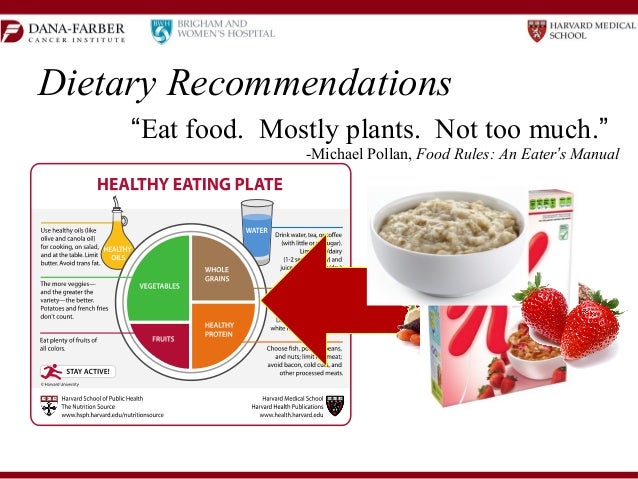The Impact of Diet on Nutritional Outcomes in Median Arcuate Ligament Syndrome (MALS)

In cases of Median Arcuate Ligament Syndrome (MALS), proper diet and nutrition play a crucial role in managing the condition and alleviating symptoms. MALS is a rare condition where the median arcuate ligament compresses the celiac artery, leading to a variety of gastrointestinal and systemic issues. While surgery is often the recommended treatment, adopting a specialized diet can also make a significant difference in promoting better health and overall well-being.
The nutritional considerations for individuals with MALS are multifaceted. Firstly, it is essential to consume a balanced diet that provides all the necessary macronutrients (carbohydrates, proteins, and fats) in the appropriate proportions. This ensures that the body receives adequate energy and nutrients to support its daily functions and maintain optimal health.
High-Calorie, High-Protein Diet
Due to the potential weight loss associated with MALS, individuals may need to increase their calorie intake to prevent malnutrition and muscle wasting. A high-calorie diet, combined with additional protein consumption, can help replenish lost nutrients and support muscle growth and repair.
It is important to consult with a healthcare professional or registered dietitian to determine the appropriate calorie and protein goals based on individual needs and medical history.
Focus on Nutrient-Dense Foods
When planning a diet for MALS, it is advisable to prioritize nutrient-dense foods that provide a wide range of essential vitamins, minerals, and antioxidants. These include fruits, vegetables, whole grains, lean proteins, and healthy fats. By including a variety of these foods in one’s daily meals, individuals can ensure they are obtaining the necessary nutrients to support their overall health and well-being.
Minimize Trigger Foods
Individuals with MALS may experience specific trigger foods that exacerbate their symptoms. These can vary from person to person, but common triggers include spicy foods, high-fat foods, caffeine, and carbonated beverages. Keeping a food diary and paying attention to how certain foods affect symptoms can help identify and avoid trigger foods, minimizing discomfort and improving quality of life.
By making thoughtful dietary choices and consistently meeting the nutritional needs of their bodies, individuals with MALS can potentially alleviate symptoms and enhance their overall well-being. It is important to work closely with healthcare professionals and registered dietitians to develop a personalized diet plan that considers individual needs and goals. With the right nutritional considerations, diet can indeed make a significant difference in managing MALS.
The Impact of Diet on MALS
When it comes to managing MALS (Median Arcuate Ligament Syndrome), nutritional considerations play a crucial role. Diet can make a significant difference in the management and symptoms of MALS. By making appropriate dietary choices, individuals with MALS can improve their quality of life and potentially alleviate some of the symptoms associated with this condition.
Here are some key nutritional considerations for individuals with MALS:
- Low-fat diet: Consuming a diet that is low in fat can reduce the symptoms of MALS, as fatty foods can worsen abdominal pain and discomfort. Opt for lean proteins and avoid high-fat foods like fried foods, fatty meats, and processed snacks.
- High-fiber diet: Including high-fiber foods in the diet can help promote regular bowel movements and alleviate constipation, a common symptom in individuals with MALS. Foods like whole grains, fruits, vegetables, and legumes are excellent sources of dietary fiber.
- Adequate hydration: Staying hydrated is essential for overall health, particularly for individuals with MALS. Drinking enough water can help prevent dehydration and keep the digestive system functioning smoothly. Aim to drink at least eight glasses of water per day.
- Small, frequent meals: Eating smaller, more frequent meals throughout the day can help reduce the burden on the digestive system and prevent excessive stretching of the ligament. This can help alleviate symptoms of MALS such as abdominal pain, bloating, and nausea.
In addition to these specific considerations, it is important for individuals with MALS to work closely with a healthcare professional or registered dietitian to develop an individualized dietary plan that meets their unique needs and preferences. By incorporating these dietary changes and working with a healthcare professional, individuals with MALS can make a significant difference in their overall well-being and symptom management.
Understanding MALS and Its Effects on Nutrition
Diet plays a crucial role in managing the symptoms of Median Arcuate Ligament Syndrome (MALS). By making specific changes to your diet, you can alleviate the discomfort and improve your overall health.
Nutritional considerations are essential in addressing the unique challenges that MALS presents. Due to the compression of the celiac artery, the blood flow to the digestive organs is restricted, affecting the digestion and absorption of nutrients.
However, there is hope. By implementing a tailored diet plan, you can make a difference in your nutritional well-being and quality of life.
Here are some key considerations when it comes to your diet and MALS:
- Small, frequent meals: Consuming smaller meals throughout the day can help minimize the discomfort caused by MALS while still providing essential nutrients.
- High-calorie, nutrient-dense foods: Choose foods that are rich in calories and nutrients to support your body’s needs. Include healthy sources of protein, carbohydrates, and fats for sustained energy.
- Soft and easily digestible foods: Opt for foods that are easier for your digestive system to process, such as cooked vegetables, lean meats, and easily digestible grains.
- Hydration: Stay hydrated by drinking plenty of fluids, which can help improve digestion and prevent constipation.
In addition to these considerations, it is important to consult with a healthcare professional who specializes in MALS to create a customized and sustainable diet plan that meets your specific nutritional needs.
Remember, with the right nutritional approach, you have the power to improve your health and well-being, even with MALS.
Dietary Recommendations for MALS Patients
If you have been diagnosed with Median Arcuate Ligament Syndrome (MALS), making changes to your diet can make a significant difference in managing your symptoms and improving your overall well-being. Here are some important considerations to keep in mind:
- Reduce High-Fat Foods: High-fat foods can exacerbate symptoms of MALS. It is recommended to limit your intake of foods such as fried foods, fatty meats, full-fat dairy products, and greasy snacks.
- Increase Fiber Intake: Consuming a diet high in fiber can help alleviate digestive symptoms associated with MALS. Include plenty of fruits, vegetables, whole grains, and legumes in your meals.
- Stay Hydrated: Drinking an adequate amount of water throughout the day is essential for maintaining optimal digestive function and preventing dehydration.
- Eat Small, Frequent Meals: Rather than consuming large meals, opt for smaller, more frequent meals throughout the day. This can help reduce the strain on your digestive system and minimize symptoms.
- Avoid Trigger Foods: Pay attention to any specific foods that trigger your symptoms and try to avoid them. These trigger foods can vary from person to person, so it’s important to listen to your body and make note of any discomfort or reactions.
- Consider a Low-FODMAP Diet: Some individuals with MALS may find relief by following a low-FODMAP diet. This diet restricts certain types of carbohydrates that can cause digestive distress for some people.
Consulting a registered dietitian who specializes in MALS can provide personalized guidance and support in developing a diet plan that best suits your individual needs. Remember, making mindful dietary choices can significantly improve your quality of life with MALS.
The Role of Protein in MALS Nutrition
When it comes to managing MALS, nutritional considerations are crucial. Diet plays a significant role in alleviating symptoms and maximizing overall health. One key element to focus on is protein intake.
Why is protein important?
Protein is an essential macronutrient that plays a vital role in many bodily functions. It is responsible for building and repairing tissues, supporting a healthy immune system, and providing energy.
For MALS patients, protein is particularly important due to its role in muscle growth and maintenance. Since MALS can lead to muscle wasting, ensuring an adequate protein intake becomes even more important.
Protein also has a satiating effect, meaning it helps you feel fuller for longer. This can be beneficial for those with MALS who may struggle with decreased appetite or difficulty in consuming enough calories.
How much protein should I consume?
The recommended daily protein intake for MALS patients can vary depending on factors such as age, weight, and activity level. Generally, it is advisable to aim for a protein intake of at least 1.2 grams per kilogram of body weight per day. However, it is essential to consult with a healthcare professional or registered dietitian to determine the specific protein requirement that suits your individual needs.
What are good sources of protein?
When planning your diet, focus on incorporating a variety of protein-rich foods. Good sources of protein include lean meats, poultry, fish, eggs, dairy products, legumes, nuts, and seeds.
Here is a sample of protein-rich foods:
- Grilled chicken breast
- Salmon fillet
- Greek yogurt
- Eggs
- Quinoa
- Chickpeas
- Almonds
Conclusion
Incorporating sufficient protein into your diet can make a significant difference in managing MALS. It aids in muscle growth and maintenance, helps you feel fuller for longer, and supports overall health. Consult with a healthcare professional or registered dietitian to determine your specific protein needs and create a personalized nutrition plan that suits your individual requirements.
Importance of Balanced Macronutrient Intake
When considering nutritional considerations in MALS, it is essential to understand the significance of maintaining a balanced macronutrient intake. A well-balanced diet can make a significant difference in managing the symptoms associated with MALS.
MALS, which stands for Median Arcuate Ligament Syndrome, is a condition that affects blood flow to the digestive system. Individuals with MALS often experience symptoms such as abdominal pain, weight loss, nausea, and vomiting after eating. While medical interventions such as surgery may be necessary in some cases, dietary modifications can also play a crucial role in managing this condition.
A balanced diet, rich in the right proportion of macronutrients, can help alleviate symptoms and improve overall well-being. Macronutrients include carbohydrates, proteins, and fats, and each of these components has a specific role in the body.
Carbohydrates: Carbohydrates are the body’s primary source of energy. Including complex carbohydrates from whole grains, fruits, and vegetables in the diet, can help provide sustained energy while keeping blood sugar levels stable.
Proteins: Proteins are essential for cell growth, repair, and maintenance. Consuming adequate amounts of high-quality proteins from sources like lean meats, fish, poultry, and legumes can help the body recover and heal from the effects of MALS.
Fats: Healthy fats, such as omega-3 fatty acids found in fatty fish, avocados, and nuts, are crucial for brain health, hormone production, and reducing inflammation. Including these fats in the diet can help manage MALS symptoms and support overall well-being.
Additionally, it is essential to emphasize the importance of proper portion sizes and meal timing. Eating smaller, more frequent meals throughout the day can help alleviate digestive discomfort and prevent excessive strain on the affected blood vessels.
It is essential to work with a healthcare professional or registered dietitian who specializes in MALS to develop an individualized diet plan that meets specific nutritional needs. A well-designed diet can make a significant difference in managing the symptoms of MALS and improving overall quality of life.
Choosing the Right Carbohydrates for MALS Patients
When it comes to the nutritional considerations for patients with MALS (Median Arcuate Ligament Syndrome), diet plays a crucial role in managing symptoms and improving overall health. One important aspect of the diet for MALS patients is choosing the right carbohydrates.
Carbohydrates are an essential source of energy for the body, but not all carbohydrates are created equal. MALS patients should focus on consuming carbohydrates that are easily digestible and gentle on the digestive system. This can help reduce symptoms such as abdominal pain, bloating, and nausea.
Here are some key considerations to keep in mind when selecting carbohydrates for MALS patients:
- Easily Digestible: Choose carbohydrates that are easy to digest, such as cooked vegetables, fruits, and whole grains. These foods are broken down quickly by the body, reducing the strain on the digestive system.
- Avoid Fiber-Rich Foods: While fiber is typically considered a healthy component of a balanced diet, it can be problematic for MALS patients. High-fiber foods, such as beans, bran, and whole wheat, can be harder to digest and may exacerbate symptoms.
- Low-Glycemic Index: The glycemic index (GI) measures how quickly foods raise blood sugar levels. MALS patients may benefit from choosing carbohydrates with a low GI, as they are digested more slowly and provide a steadier release of energy. Examples include sweet potatoes, quinoa, and lentils.
It’s important to note that every individual with MALS may have different tolerances and sensitivities to certain carbohydrates. It’s recommended to work closely with a registered dietitian or healthcare professional to devise a personalized diet plan that meets individual needs and preferences.
By paying attention to the type of carbohydrates consumed, MALS patients can make a significant difference in managing their symptoms and improving their overall well-being. Remember, every food choice matters when it comes to supporting the body’s nutritional needs.
The Significance of Healthy Fat Sources
When it comes to diet and its impact on MALS (Median Arcuate Ligament Syndrome), the right choices can make a significant difference in nutritional management. One essential aspect to consider is the inclusion of healthy fat sources in your meals.
Healthy fats play a crucial role in supporting overall health and well-being. They are essential for providing energy, absorbing fat-soluble vitamins, and maintaining proper cell function. However, not all fats are created equal.
Can fats in your diet have a positive impact on MALS symptoms? The answer is yes. Including healthy fat sources in your meals can provide numerous benefits. These fats can help reduce inflammation, support brain health, and promote healthy digestion.
Here are some healthy fat sources you can incorporate into your MALS-friendly diet:
- Avocados: Rich in monounsaturated fats, avocados are an excellent source of healthy fats. They also contain fiber, vitamins, and minerals.
- Salmon: Packed with omega-3 fatty acids, salmon is a great choice for healthy fat intake. Omega-3s offer anti-inflammatory properties and can support heart health.
- Coconut Oil: This versatile oil contains medium-chain triglycerides (MCTs) that are easily digested and utilized for energy.
- Nuts and Seeds: Almonds, walnuts, chia seeds, and flaxseeds are all rich in healthy fats and provide additional nutrients such as protein, fiber, and antioxidants.
Incorporating these healthy fat sources into your MALS diet can help provide essential nutrients and support your overall well-being. However, it’s important to remember that moderation is key. Balance your fat intake with other nutrients to ensure a well-rounded and nutritious approach to eating.
The Role of Fiber in MALS Diet
Nutritional considerations play a crucial role in managing MALS (Median Arcuate Ligament Syndrome). One such consideration is the diet one follows. Fiber is an important component of a MALS diet that can make a significant difference in managing this condition.
MALS affects the blood flow to the digestive organs, leading to various symptoms such as abdominal pain, bloating, and weight loss. A well-balanced and nutritious diet can help alleviate these symptoms and improve overall well-being.
Fiber is a type of carbohydrate found in plant-based foods. It is not digested by the body but instead passes through the digestive system, providing various health benefits. Incorporating an adequate amount of fiber in the MALS diet can have several positive effects.
- Improved digestion: Fiber adds bulk to the stool, preventing constipation and promoting regular bowel movements. This is particularly beneficial for individuals with MALS who may experience digestive issues.
- Stabilized blood sugar levels: Fiber slows down the absorption of sugar, preventing rapid spikes in blood sugar levels. This can be especially helpful for individuals with MALS who may also have diabetes or insulin resistance.
- Reduced cholesterol levels: Soluble fiber found in foods like oats, beans, and fruits can help lower LDL cholesterol levels, reducing the risk of heart disease.
- Weight management: Fiber promotes satiety and can help control appetite, which may aid in weight management.
Here is an example of a MALS-friendly diet rich in fiber:

| Meal | Food Choices |
| Breakfast | Oatmeal with berries and chia seeds |
| Lunch | Quinoa salad with mixed vegetables |
| Snack | Raw almonds and an apple |
| Dinner | Baked salmon with steamed broccoli and brown rice |
| Snack | Carrot sticks with hummus |
It is important to gradually increase fiber intake and ensure adequate hydration to prevent any discomfort or digestive disturbances. Consulting with a registered dietitian can help create a personalized MALS diet plan that includes the right amount of fiber and meets individual nutritional needs.
In conclusion, incorporating fiber in the MALS diet can have numerous benefits for individuals with this condition. From improved digestion to better management of blood sugar levels, fiber plays a valuable role in supporting overall health and well-being.
Fluid Intake Recommendations for MALS Patients
When it comes to managing nutritional considerations in patients with Median Arcuate Ligament Syndrome (MALS), a proper fluid intake is essential. Ensuring that you are consuming enough fluids throughout the day can make a significant difference in your overall well-being and symptom management. Here are some fluid intake recommendations to consider:
- Stay hydrated: It is important to stay hydrated by drinking an adequate amount of fluids each day. Aim for at least 8-10 cups (64-80 ounces) of fluid per day.
- Choose the right fluids: Opt for healthy, hydrating options like water, herbal tea, and clear broths. Avoid excessive intake of caffeinated and sugary beverages, as they can contribute to dehydration.
- Spread out your intake: Instead of consuming large amounts of fluids at once, try to spread your intake evenly throughout the day. This can help prevent feelings of bloating and discomfort.
- Monitor urine color: Pay attention to the color of your urine as it can be an indicator of hydration status. Aim for a pale yellow color, indicating good hydration.
- Consider electrolyte balance: If you are experiencing symptoms like vomiting or diarrhea, it is crucial to maintain a proper balance of electrolytes. You may need to consume electrolyte-rich fluids or consult a healthcare professional for guidance.
- Talk to your healthcare provider: It is always a good idea to discuss your fluid intake recommendations with your healthcare provider, as they can provide personalized guidance based on your specific nutritional needs.
By following these fluid intake recommendations, you can support your nutritional considerations as a MALS patient and make a positive difference in managing your diet and overall well-being.
The Impact of Vitamins and Minerals on MALS Patients
When it comes to managing the symptoms of Median Arcuate Ligament Syndrome (MALS), a proper diet can make a significant difference in a patient’s overall well-being. Incorporating key vitamins and minerals into their daily intake can help alleviate symptoms and improve quality of life.
Vitamin C: This essential nutrient plays a crucial role in collagen synthesis, which supports the health of blood vessels. Including foods high in vitamin C, such as oranges, strawberries, and bell peppers, can help maintain the integrity of the blood vessels affected by MALS.
Vitamin D: A deficiency in vitamin D has been linked to various health issues, including weakened immune system function. MALS patients are already dealing with compromised blood flow, so ensuring adequate vitamin D intake is essential. Foods like fatty fish, fortified milk, and eggs are excellent sources of vitamin D.
Vitamin E: As an antioxidant, vitamin E can help reduce inflammation and oxidative stress. Incorporating foods rich in this vitamin, like almonds, sunflower seeds, and spinach, can aid in the management of MALS symptoms.
Iron: MALS patients may experience anemia due to poor blood flow, which can lead to fatigue and weakness. Increasing iron intake through sources like lean meats, beans, and leafy greens can help combat anemia and improve energy levels.
Magnesium: Low magnesium levels have been associated with muscle cramps and spasms. Including magnesium-rich foods such as avocados, bananas, and nuts can help alleviate these symptoms and promote muscle relaxation.
Zinc: Zinc is essential for wound healing and immune function, both of which are crucial for MALS patients. Foods like oysters, beef, and pumpkin seeds are excellent sources of zinc and should be included in the diet to support overall health.
In combination with medical treatments, a diet rich in these essential vitamins and minerals can make a significant difference in managing the symptoms of MALS. Consulting with a healthcare professional or registered dietitian can help ensure proper nutritional support tailored to each individual’s needs.
Understanding Food Intolerances in MALS
Living with mals can make a significant difference in your diet and overall well-being. Food intolerances are an important consideration for individuals with mals, as certain foods can exacerbate symptoms and impact digestive health. Understanding and managing food intolerances is crucial for maintaining a healthy diet and reducing discomfort.
What are food intolerances?
Food intolerances occur when the body has difficulty digesting certain foods or components of food. This can lead to symptoms such as bloating, gas, diarrhea, and stomach pain. In individuals with mals, the digestive system is already compromised, making it even more important to identify and avoid foods that may cause intolerance symptoms.
Identifying food intolerances in MALS
Identifying food intolerances can be a challenge, as symptoms can vary from person to person. Keeping a food diary and noting any symptoms that occur after consuming certain foods can help pinpoint intolerances. Additionally, working with a healthcare professional, such as a registered dietitian, can provide guidance and support in identifying problem foods.
Managing food intolerances
Once food intolerances are identified, it is important to develop a management plan. This may involve avoiding certain foods completely or finding alternatives that do not trigger symptoms. Some commonly problematic foods for individuals with mals include dairy products, gluten, and high-fat foods. However, it is important to note that every individual is different, and what may trigger symptoms for one person may not affect another.
Eating a balanced diet
Managing food intolerances does not mean sacrificing a balanced diet. It is important to work with a healthcare professional to ensure that you are getting all the necessary nutrients while avoiding problem foods. A registered dietitian can help create a customized meal plan that takes into consideration your specific dietary needs and restrictions.
Conclusion
Understanding and managing food intolerances is an essential part of living with mals. By identifying problem foods and working with a healthcare professional, individuals with mals can make dietary changes that can positively impact their overall health and well-being.
Managing Symptoms with Proper Meal Planning
Are you struggling with nutritional considerations in MALS? Is your diet making a difference in managing your symptoms? At XYZ Nutrition, we understand the challenges you face and are here to help.
Our team of experts specializes in creating personalized meal plans that can make a real difference in your health and well-being. We take into account the unique nutritional considerations of MALS and design a diet specifically tailored to your needs.
With the right diet, you can alleviate symptoms and improve your quality of life. Our meal plans focus on:
- Providing the necessary nutrients to support your body’s needs
- Managing symptoms through strategic food choices
- Optimizing digestion and nutrient absorption
Our approach is evidence-based, ensuring that you receive the best nutritional care possible. We stay up to date on the latest research and developments in MALS nutrition to provide you with the most effective meal plans.
Don’t let MALS control your life. Take charge of your nutrition today. Contact XYZ Nutrition and let us help you manage your symptoms with proper meal planning.
Contact XYZ Nutrition:
| Phone: 123-456-7890 |
| Email: [email protected] |
The Role of Supplementation in MALS Nutrition
When it comes to nutritional considerations in MALS, diet can certainly make a difference. However, sometimes it is necessary to supplement your diet with specific nutrients to ensure optimal health and well-being. This is where the role of supplementation becomes crucial.
What is MALS?
MALS, or Median Arcuate Ligament Syndrome, is a rare condition that affects the digestive system. It occurs when the median arcuate ligament, a band of tissue that surrounds and supports the diaphragm and the organs of the digestive system, becomes compressed. This compression can lead to a range of symptoms, including abdominal pain, weight loss, and malnutrition.
The Importance of Nutritional Considerations
Proper nutrition plays a pivotal role in managing MALS. A well-balanced diet that is rich in essential nutrients can help alleviate symptoms and improve overall health. However, due to the potential difficulties in absorbing nutrients caused by MALS, supplementation may be necessary to ensure that the body receives all the nutrients it needs.
Key Nutrients for MALS Patients
There are several key nutrients that MALS patients may need to focus on, including:
- Protein: Protein is important for tissue repair and growth, which is crucial for MALS patients experiencing weight loss.
- Vitamin B12: MALS patients may have difficulty absorbing this essential vitamin, which is necessary for nerve function and red blood cell production.
- Iron: Iron deficiency can lead to anemia and fatigue. Supplementing with iron may be necessary for MALS patients.
- Calcium and Vitamin D: These nutrients are vital for maintaining bone health, especially for MALS patients who may be at an increased risk of osteoporosis.
Consulting with a Healthcare Professional
If you have MALS, it is important to consult with a healthcare professional, such as a registered dietitian or a gastroenterologist, to determine your specific nutritional needs. They can help assess your dietary habits and recommend appropriate supplements to ensure you are getting the nutrients your body needs.
Conclusion
While diet can make a difference in managing MALS, supplementation may be necessary. By addressing the specific nutritional considerations of MALS patients and ensuring their diets are well-balanced and supplemented as needed, it is possible to improve their overall health and well-being.
Working with a Registered Dietitian for MALS
When it comes to managing Nutritional Considerations in MALS, choosing the right diet can make all the difference. That’s where a Registered Dietitian comes in. They are trained professionals who understand the nutritional needs and considerations specific to MALS patients.
A Registered Dietitian can work closely with you to develop a personalized diet plan that takes into account your specific nutritional needs and goals. They can help you make informed food choices to optimize your health and manage symptoms related to MALS.
Some key nutritional considerations for MALS patients include:
- Increasing calorie intake to compensate for weight loss and malabsorption
- Choosing nutrient-dense foods to ensure you get the necessary vitamins and minerals
- Managing symptoms such as nausea and bloating through dietary modifications
- Monitoring and adjusting your diet as needed to maintain a healthy weight
Working with a Registered Dietitian can provide you with the guidance and support you need to navigate these considerations and make positive changes to your diet. They can also help address any concerns or challenges you may face along the way, providing you with the tools and knowledge to succeed.
Remember, diet can make a difference in managing MALS. Consult a Registered Dietitian today to start your journey towards better nutrition and improved well-being.
Future Trends in MALS Nutrition Research
The field of nutritional research in MALS (Median Arcuate Ligament Syndrome) is constantly evolving, and new studies are being conducted to explore the impact of diet on this condition. Considerations in diet and nutrition can potentially make a significant difference in the management and treatment of MALS. Here are some future trends to watch out for:
- Personalized Nutrition: With advancements in genetic testing and nutritional profiling, researchers are increasingly looking into personalized nutrition plans for individuals with MALS. Tailoring the diet to an individual’s specific needs and genetic makeup may enhance the effectiveness of treatment.
- Exploring Specific Nutrients: Certain nutrients have been found to play a crucial role in managing MALS symptoms. Ongoing research is focused on identifying the impact of nutrients such as antioxidants, omega-3 fatty acids, and vitamin D in alleviating symptoms and improving overall health.
- Optimizing Caloric Intake: The balance between caloric intake and energy expenditure is essential for individuals with MALS. Researchers are investigating the optimal caloric intake for different stages of MALS, taking into account factors such as physical activity level, body composition, and disease progression.
- Effects of Micronutrients: Micronutrients, including vitamins and minerals, are crucial for overall health. Studies are being conducted to determine the impact of various micronutrients on MALS symptoms, such as fatigue, muscle weakness, and gastrointestinal issues.
- Role of Gut Microbiota: The gut microbiota has a significant influence on overall health and digestion. Research is being conducted to understand the relationship between MALS and gut microbiota composition, which may lead to novel nutritional strategies for managing symptoms.
In conclusion, the future of MALS nutrition research is promising, with a focus on personalized nutrition, specific nutrients, caloric intake optimization, micronutrient effects, and gut microbiota. These advancements have the potential to make a significant difference in managing symptoms and enhancing the overall well-being of individuals with MALS.
Q&A:
How can diet affect MALS?
Diet plays a crucial role in managing the symptoms of MALS. Certain foods can trigger symptoms, while others can help alleviate them. It is important to work with a healthcare professional to develop a personalized diet plan.
What foods should be avoided for someone with MALS?
People with MALS should avoid foods that are high in fat and can exacerbate symptoms, such as fried foods, fatty meats, and processed snacks. It is also recommended to limit intake of caffeine and alcohol.
Can a specific diet cure MALS?
No, a specific diet cannot cure MALS. However, a well-balanced and nutritious diet can help manage the symptoms and improve overall health. It is important to consult with a healthcare professional to develop an individualized diet plan.
Are there any dietary supplements that can help with MALS?
There is no specific dietary supplement that can cure or treat MALS. However, certain supplements like digestive enzymes and probiotics may help improve digestion and reduce symptoms. It is essential to consult with a healthcare professional before starting any supplements.






